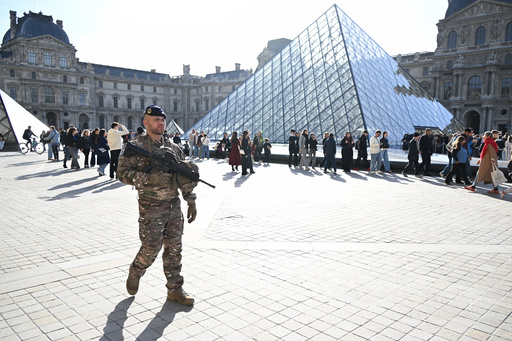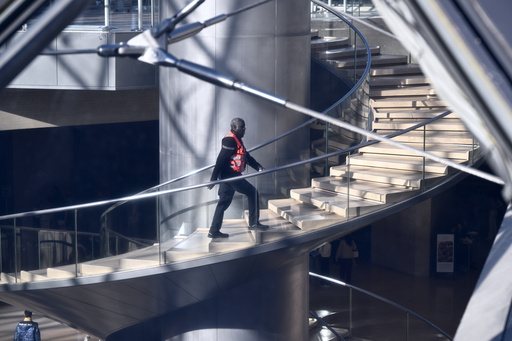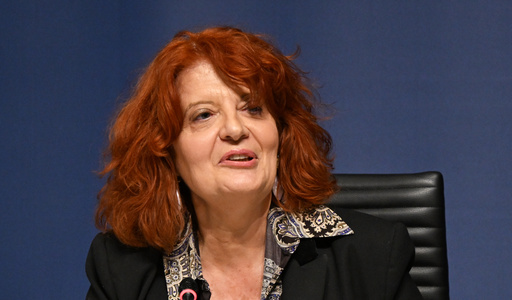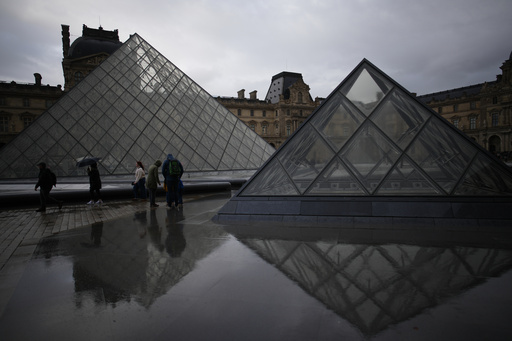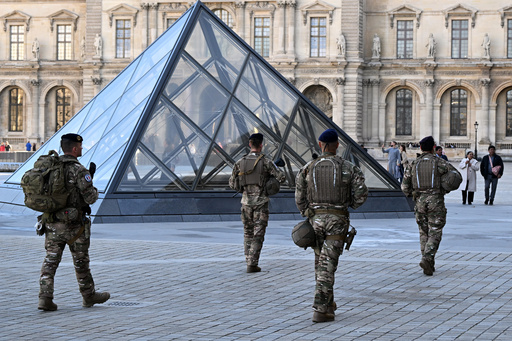5 more arrests as Louvre jewel heist probe deepens and key details emerge
News > International News

Audio By Carbonatix
3:50 AM on Thursday, October 30
By THOMAS ADAMSON and ANGELA CHARLTON
PARIS (AP) — The dragnet tightened around the Louvre thieves on Thursday. Five more people were seized in the crown-jewels heist — including a suspect tied by DNA — the Paris prosecutor said, widening the sweep across the capital and its suburbs.
Authorities said three of the four alleged members of the “commando” team, as French media have dubbed the robbers, are now in custody.
The late-night operations in Paris and nearby Seine-Saint-Denis lift the total arrested to seven. Prosecutor Laure Beccuau told RTL that one detainee is suspected of belonging to the brazen quartet that burst into the Apollo Gallery in broad daylight on Oct. 19; others held “may be able to inform us about how the events unfolded.”
Beccuau called the response an “exceptional mobilization” — about 100 investigators, seven days a week, with roughly 150 forensic samples analyzed and 189 items sealed as evidence.
Even so, she said the latest arrests did not uncover the loot — a trove valued around $102 million that includes a diamond-and-emerald necklace Napoleon gave to Empress Marie-Louise as a wedding gift, jewels tied to 19th-century Queens Marie-Amélie and Hortense, and Empress Eugénie’s pearl-and-diamond tiara.
Only one relic has surfaced so far — Eugénie’s crown, damaged but salvageable, dropped in the escape.
Beccuau renewed her appeal: “These jewels are now, of course, unsellable… There’s still time to give them back.”
Experts warn the gold could be melted and the stones re-cut to erase their past.
Key planning details have snapped into focus. Nine days before the raid, a mover who owns a truck-mounted lift — the kind movers use to hoist furniture through Parisian windows — was mysteriously booked for a “moving job” on the French classifieds site Leboncoin, a site similar to Craigslist, Beccuau said Wednesday.
When he arrived in the town of Louvres, north of Paris, around 10 a.m. on Oct. 10, two men ambushed him and stole the lift truck.
On the day of the heist itself, that same vehicle idled beneath the Paris museum’s riverside façade.
Online observers have noted a remarkable coincidence: How a plot that began in Louvres ended at the Louvre.
At 9:30 a.m. the basket lift rose to the Apollo Gallery window; at 9:34 the glass gave way; by 9:38 the crew was gone — a four-minute strike. Only the “near-simultaneous” arrival of police and museum security stopped the thieves from torching the lift and preserved crucial traces, the prosecutor said.
Security footage shows at least four men forcing a window, cutting into two display cases with power tools and fleeing on two scooters toward eastern Paris. Investigators say there is no sign of insider help for now, though they are not ruling out a wider network beyond the four on camera.
French police have acknowledged major gaps in the Louvre’s defenses, turning an audacious theft — carried out as visitors walked the corridors — into a national reckoning over how France protects its treasures.
Paris police chief Patrice Faure told senators the first alert to police came not from the Louvre’s security systems but from a cyclist outside who dialed the emergency line after seeing helmeted men with a basket lift. He acknowledged that aging, partly analog cameras and slow fixes left seams; $93 million of CCTV cabling work won’t finish before 2029–30, and the Louvre’s camera authorization even lapsed in July. Officers arrived fast, he said, but the delay came earlier in the chain.
Speaking to AP, former bank robber David Desclos characterized the heist as textbook and said he had warned the Louvre of glaring vulnerabilities in the layout of the Apollo Gallery. The Louvre has not responded to the claim.
Two earlier suspects, men aged 34 and 39 from Aubervilliers, north of Paris, were charged Wednesday with theft by an organized gang and criminal conspiracy after nearly 96 hours in custody. Beccuau said both gave “minimalist” statements and “partially admitted” their involvement.
One was stopped at Charles-de-Gaulle Airport with a one-way ticket to Algeria; his DNA matched a scooter used in the getaway.
French law normally keeps active investigations under a shroud of secrecy to protect police work and victims’ privacy. Only the prosecutor may speak publicly, though in high-profile cases police unions have occasionally shared partial details.
The brazen smash-and-grab inside the world’s most-visited museum stunned the heritage world. Four men, a lift truck and a stopwatch turned the Apollo Gallery’s blaze of gold and light into a crime scene — and a test of how France guards what it holds most dear.
